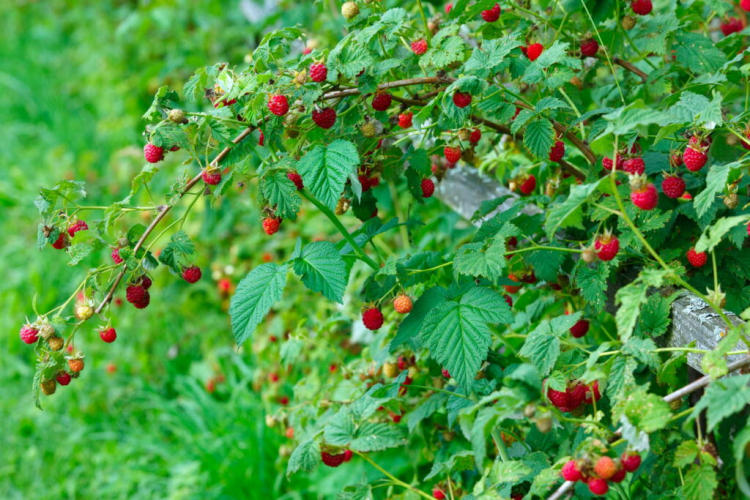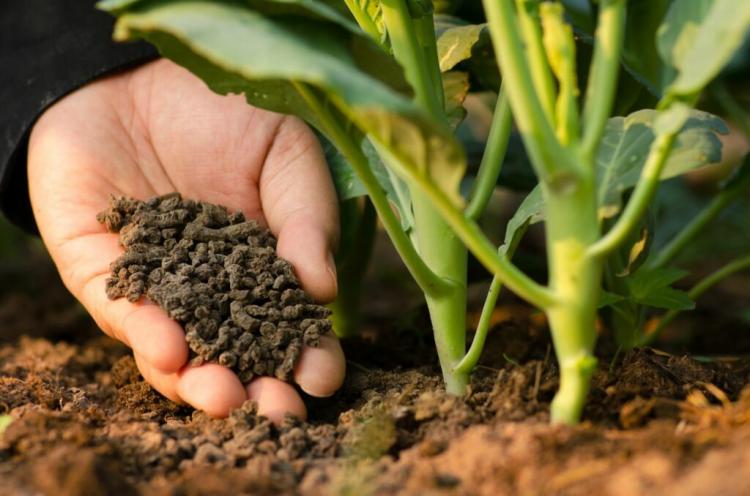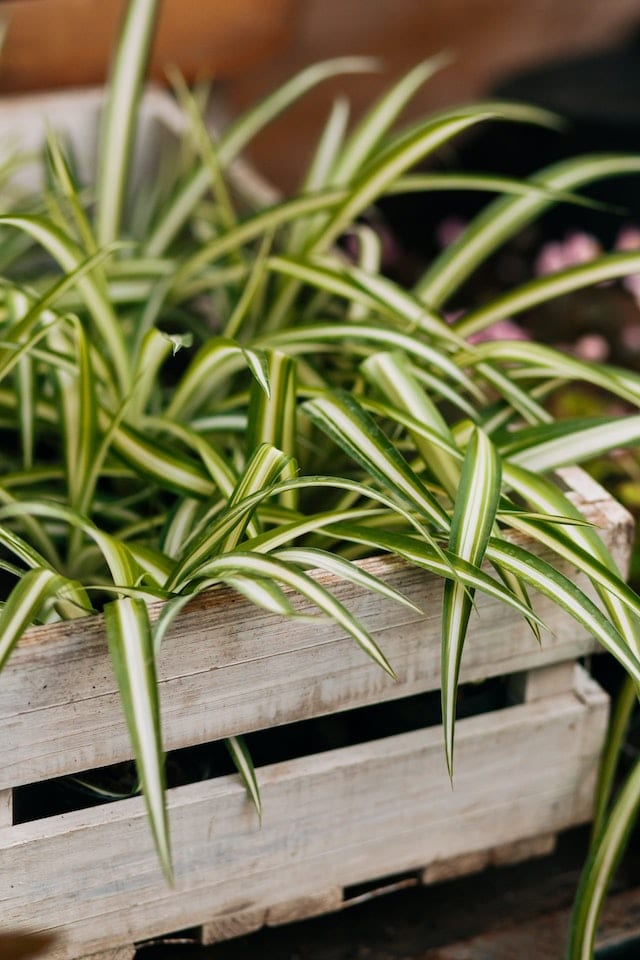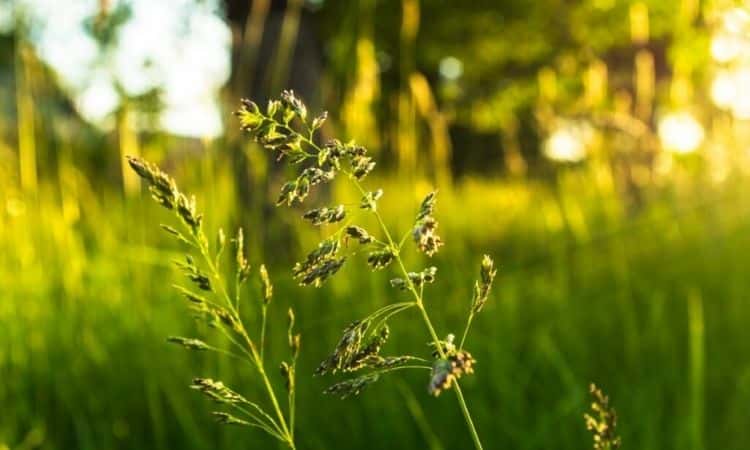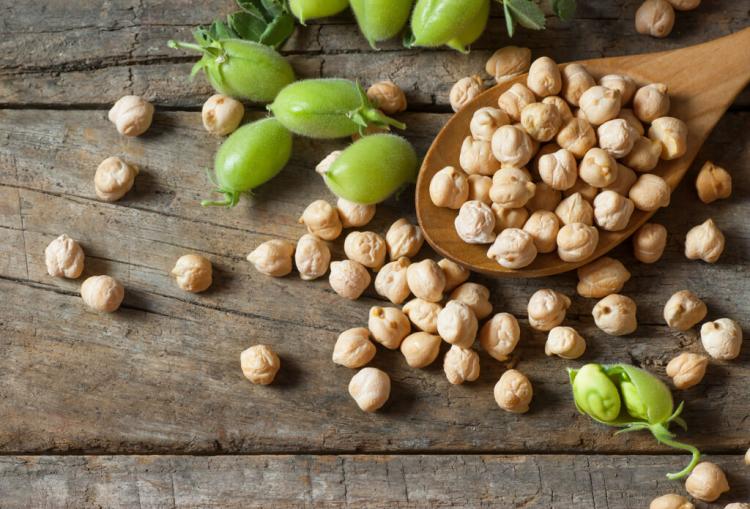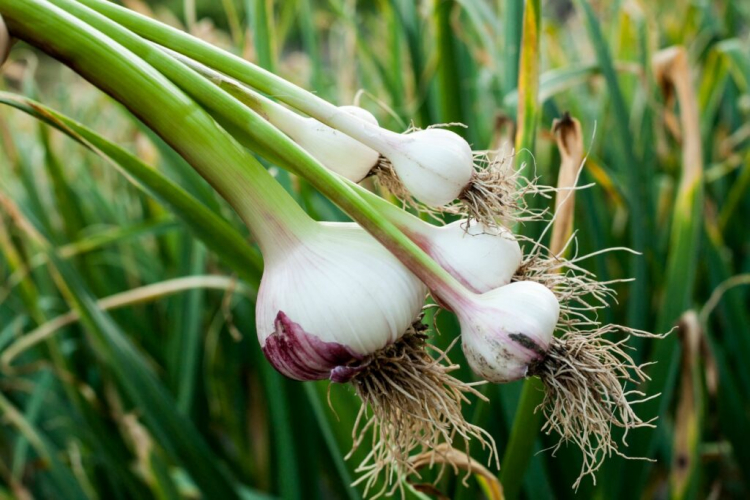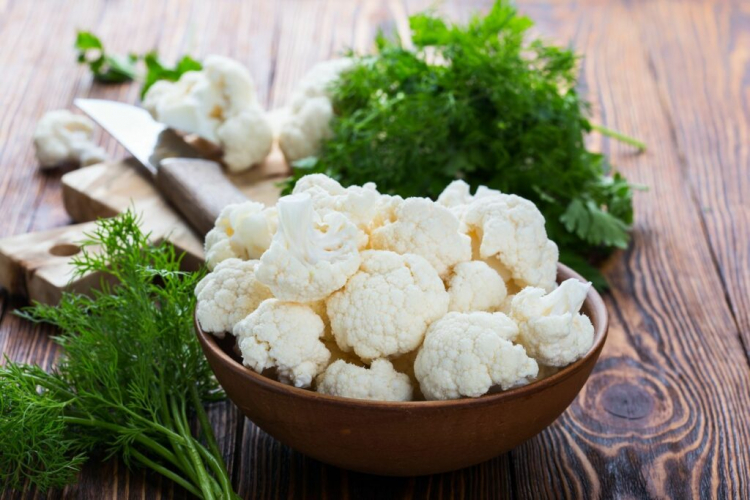When And How To Fertilizing Raspberries?
Whether mulch, compost, or organic fertilizer – we will tell you when, how, and with what best to fertilize raspberries. Those who expect a rich harvest should not only cut their raspberries (Rubus idaeus ) regularly and water them when it is dry but also provide them with sufficient nutrients. The raspberry is very vigorous and therefore has a relatively high need for nutrients. In this article, we will explain when, how, and with what best to fertilize your raspberries.
The right time to fertilize the raspberries
Table of Contents
In principle, raspberries need most of the nutrients from flowering to harvest. Since organic fertilizers only release these slowly, they have to be applied sometime before the start of flowering. This is the only way that the raspberries will have the nutrients available a few weeks later. Sometimes raspberries, just like strawberries, are recommended to be fertilized for the first time in autumn. However, if it gets warm again in autumn, it can lead to a premature, unwanted release of nitrogen.
This endangers the winter hardiness of the raspberries. We, therefore, advise against fertilizing in the autumn and, if weather conditions permit, we recommend that you fertilize the first time in early spring (March) and then fertilize again before flowering (April / May). It is best to use organic slow-release fertilizers. This is particularly gentle on the environment and provides your raspberries with long-term nutrients by slowly decomposing the fertilizer granules.
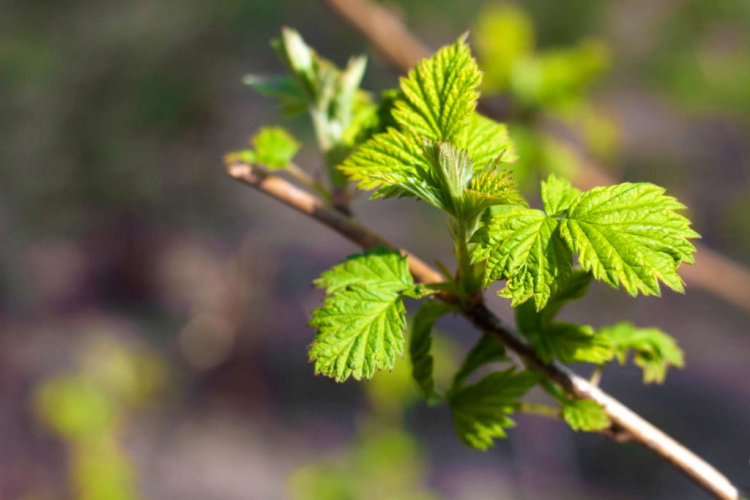
Fertilize raspberries when planting
When planting, you should put a generous amount of compost in the planting hole before planting the raspberry. If the topsoil is heavy, the plant is completely covered with compost and the topsoil is used for other purposes. The compost earth meets the soil requirements of raspberries in terms of water permeability and rooting better than heavy soil. A medium-heavy or sandy soil is mixed up with compost soil. In addition, it is easy to fertilize with organic fertilizer if the planting does not take place too late in autumn. After planting, you should cover the ground with some green cuttings. This reduces the moisture loss at the raspberry root.
Summary: When to fertilize raspberries?
- Improve lean soils with compost soil
- When planting, incorporate some organic long-term fertilizer such as our Plantura organic universal fertilizer
- Annual basic fertilization in spring (March)
- Second fertilization for flower and fruit formation (April / May)
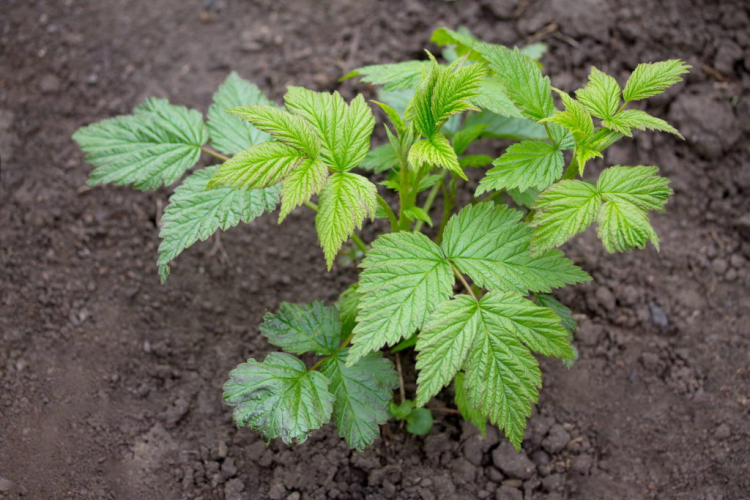
The right fertilizer for raspberries
Various organic fertilizers as well as mineral and natural fertilizers can be used to fertilize your raspberries. We explain to you what to consider when choosing a fertilizer and how you can best proceed with fertilization.
You might so like: Blueberries Fertilizer: Expert Tips And Household Remedies
Organically fertilize raspberries: Instructions for ideal application
If you compost in your own garden and have enough compost available, you don’t need to think long about what to fertilize your raspberries with. Compost and rotted manure meet the nutritional needs of the raspberries and are ideal for improving the soil in the long term. If you do not have your own garden compost available, but you have a lot of space, you can also plant clover instead of lawn in part of the garden.
The clover is then regularly mowed just like lawn and the resulting mulch is placed on the ground next to the raspberry branches. There the clover mulch rots and gradually releases the nutrients it contains. In addition to fertilization, mulch, like compost, improves the soil structure and helps the soil to dry out less quickly.
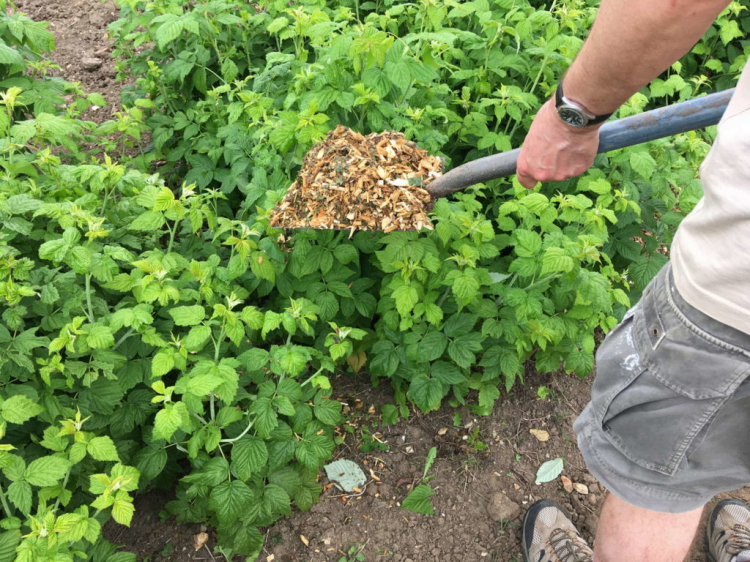
Allotment gardeners without their own compost heap and green manure options can also use organic commercial fertilizers. Granular fertilizers usually have a better long-term effect and are therefore preferable to liquid fertilizers. They also have many advantages when fertilizing raspberries, for example:
- Long-term supply of nutrients to the raspberry bushes through constant decomposition of microorganisms in the soil
- Promotion of active soil life and sustainable improvement of the soil structure
- Gentle on humans, pets, and garden animals by not using chemicals
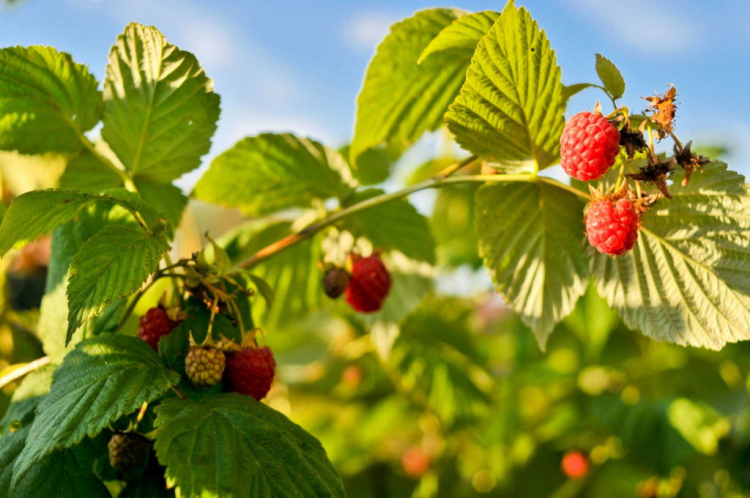
Organic universal fertilizer consists predominantly of organic, plant-based raw materials and fully meets the criteria mentioned. The nutritional composition of the fertilizer is ideal for berry bushes. A high proportion of nitrogen supports plant growth and leaf formation, especially in spring. During the vegetation period, sufficient phosphorus and potassium also ensure a rich flowering and fruiting. The production of fertilizer from residues from the food, feed, and luxury food industries is also particularly sustainable and resource-saving.
Long-term organic fertilization: Instructions and dosage quantities for raspberries
- Before planting: work 80 – 160 g / m² (6 to 13 heaped tablespoons) of our Plantura organic universal fertilizer into the topsoil layers
- Water the inserted raspberry bush well so that the granules can loosen
- Every spring (from March) fertilize 60-120 g per plant (5 to 10 tablespoons)
- A smaller application of fertilizer for blossoming and fruiting gives your raspberry additional optimal support
Fertilize raspberries with minerals
Blue grain, liquid fertilizers, and the like are popular mineral compound fertilizers, which are also often used for soft fruits. These contain very high concentrations of nutrient salts that the plants can absorb directly from the soil solution. However, the high nutrient content and rapid release can easily lead to over-fertilization of the plants. The leaching of excess nutrients into deeper soil layers then leads to contamination of the groundwater. In comparison, organic fertilizers are broken down by the microorganisms in the soil over a longer period of time and only gradually release the nutrients for the plant.
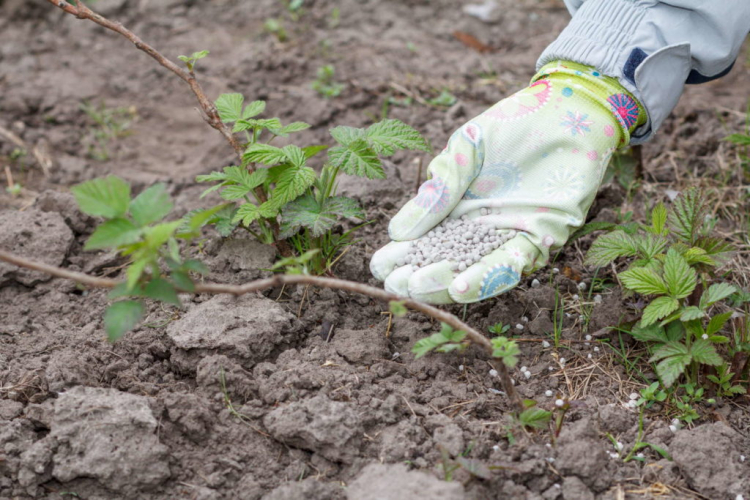
Fertilize the raspberries with coffee grounds and the like
In addition to organic and mineral fertilizers, there are also various home remedies that can be used for fertilizing in the garden. Many hobby gardeners swear by the use of plant manure as a tonic and use it in their own garden. Nettle manure, for example, contains plenty of nitrogen, potassium, and various trace elements. After fermentation is complete, the manure can be diluted with water in a ratio of 1:10 and the plant can be watered with it.
Another natural fertilizer found in almost every household is coffee grounds. The actual waste product is rich in nitrogen and can, in dried form, be sprinkled around your raspberry bushes. Coffee grounds should only be used in moderation as fertilizer, as their acidity lowers the pH value of the soil over the long term.
